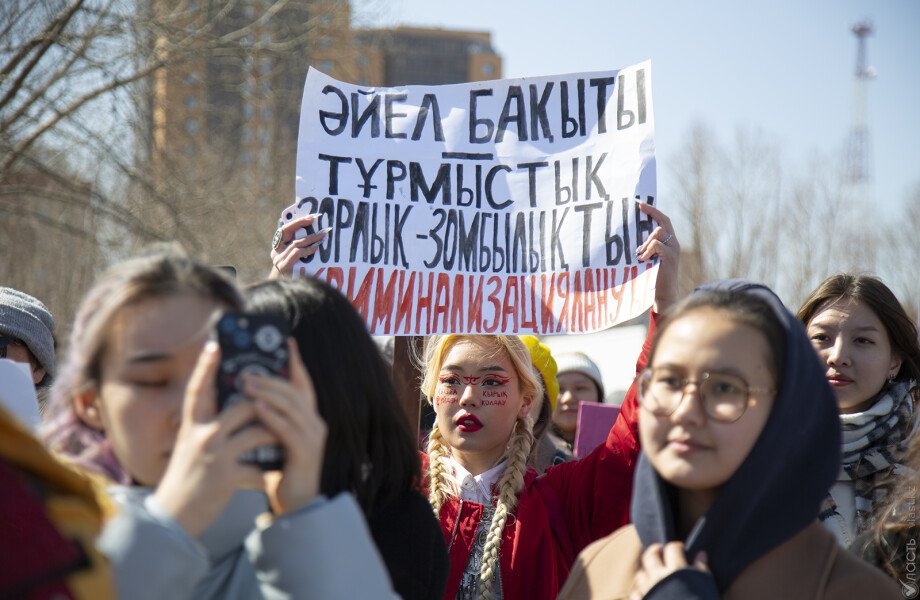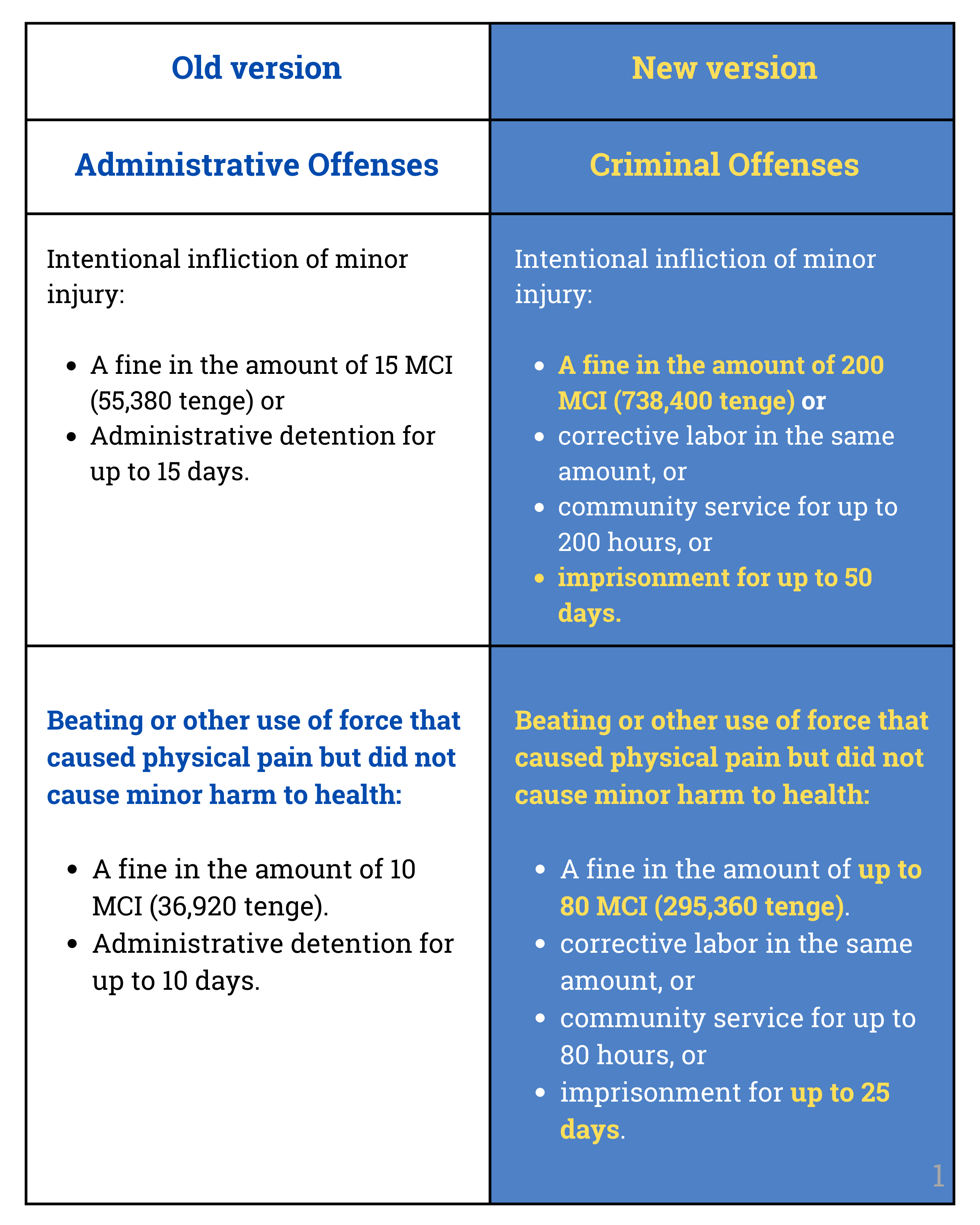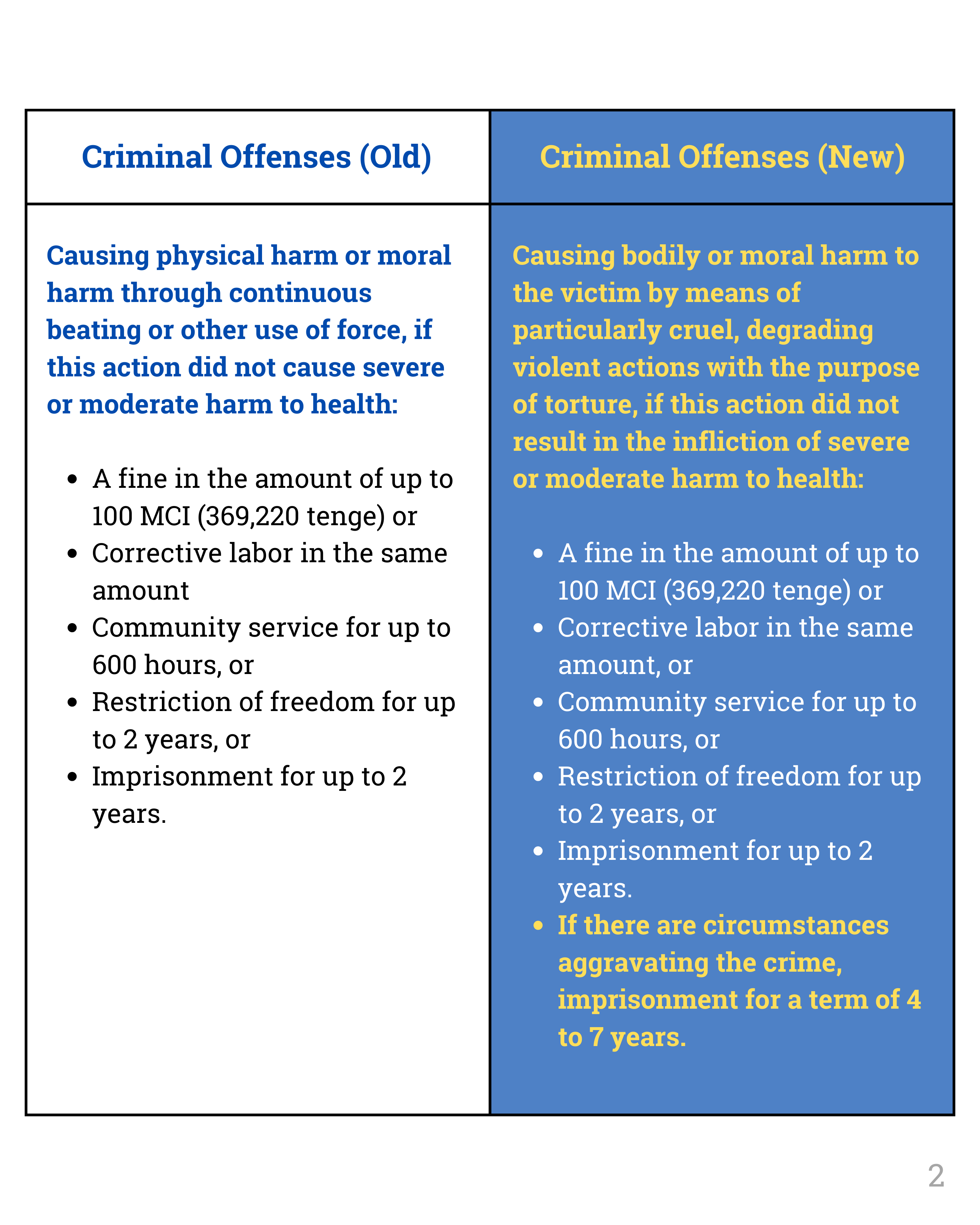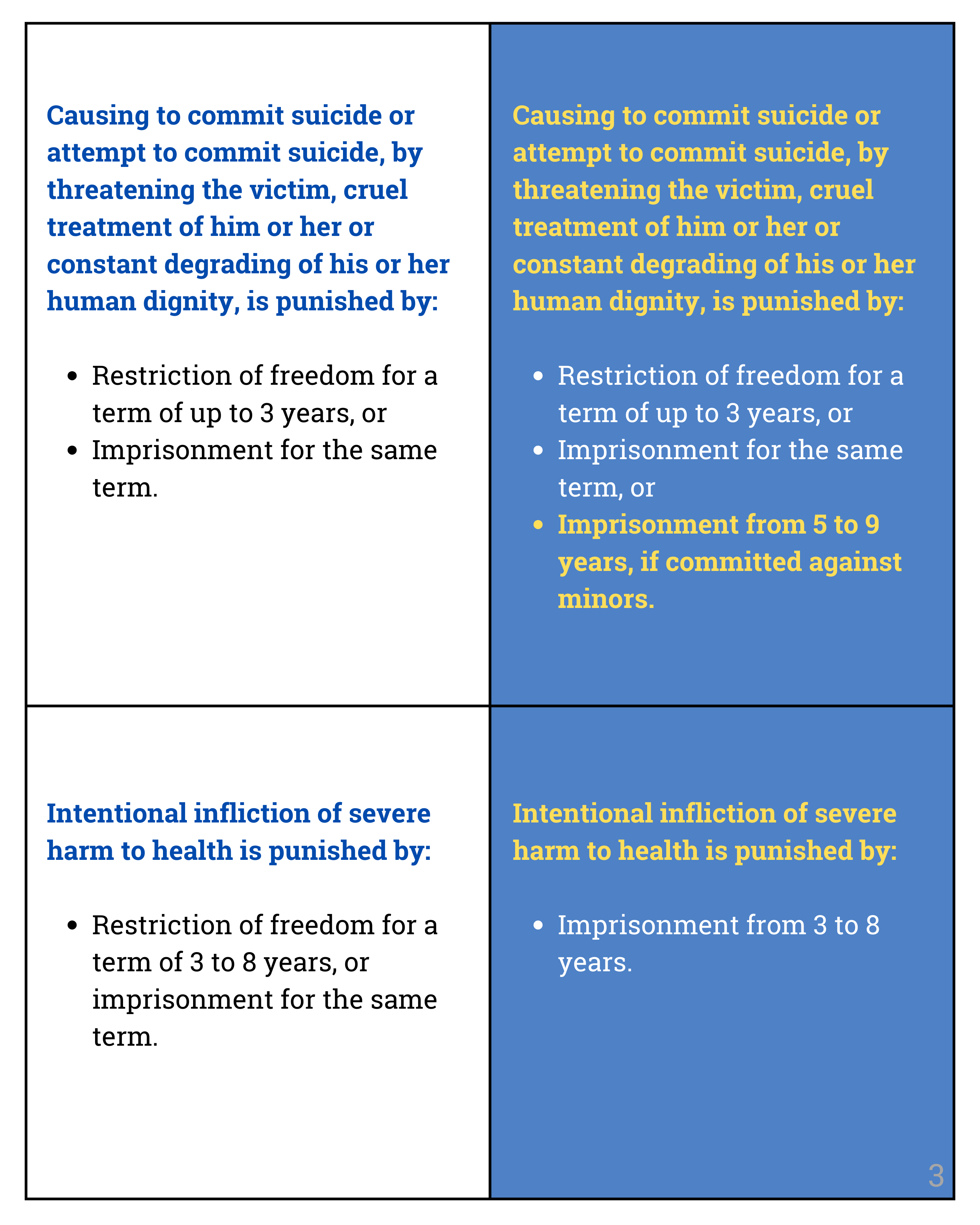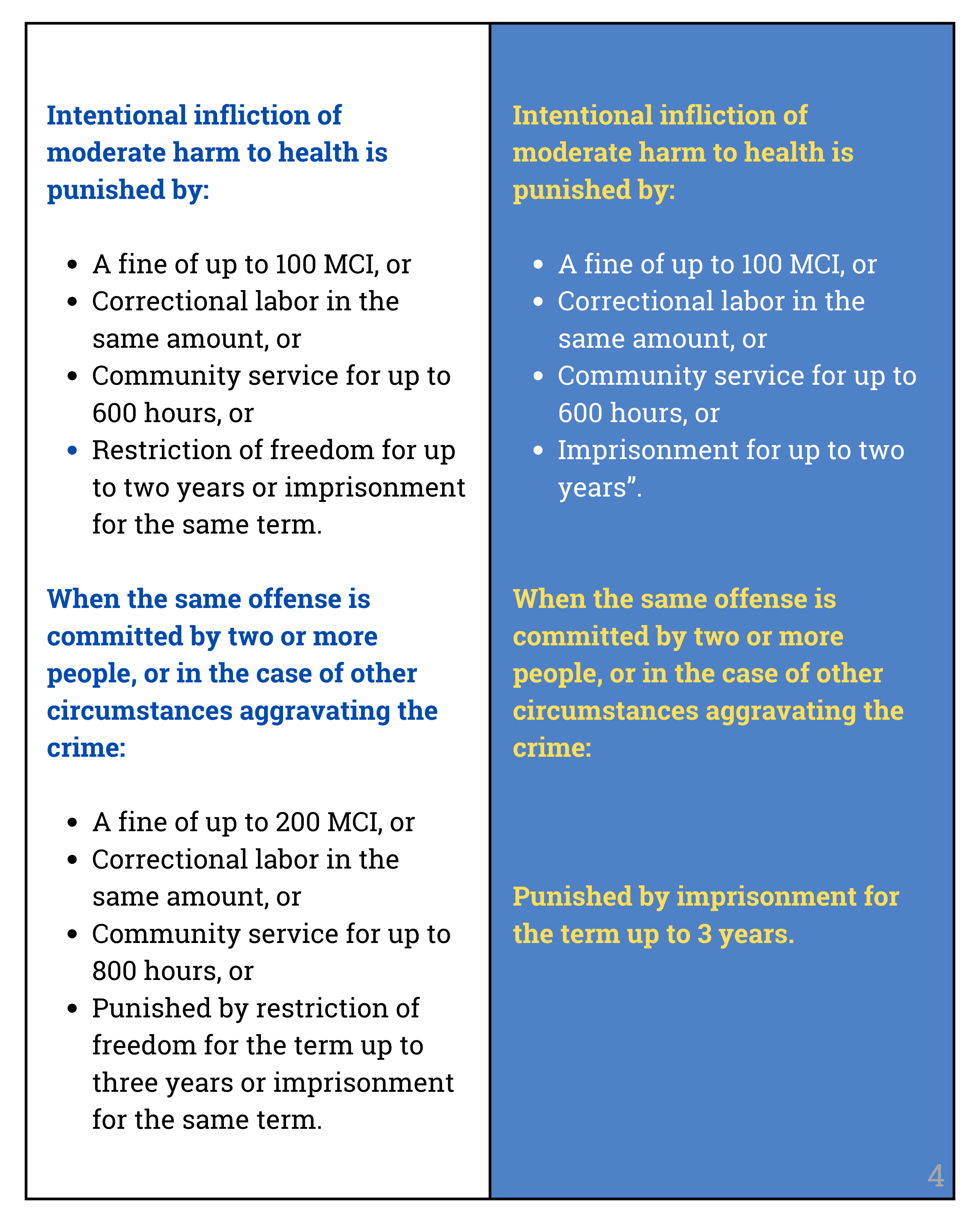On April 15, President Kassym-Jomart Tokayev signed a bill strengthening penalties for domestic violence. Now, even causing minor harm is part of the Criminal Code, while previously it had been decriminalized. The trial against a former minister of economy who is accused of having beaten and killed his wife accelerated the adoption of the law.
Aigerim Kussayinkyzy, a lawyer and a member of the working group that promoted the bill, talks about the new changes related to causing minor and severe harm.
1. Why were provisions regarding the intentional infliction of minor harm previously transferred to the Code of Administrative Offenses, the country’s Civil Code?
A number of legal reforms led to the adoption of four major codes in 2014. At that time, “the intentional infliction of minor harm to health” was included in the Criminal Code.
However, in 2017, this crime was transferred from the Criminal Code to the Code of Administrative Offenses.
The ministry of internal affairs and the Prosecutor’s Office explained that this reform was carried out “in order to strengthen preventive work with offenders and to simplify the procedures for bringing them to justice”.
2. How does the legislation define the term “health”?
Health is not only the absence of diseases and physical defects, but also a state of general physical, spiritual (mental), and social well-being. The Criminal Code defines three degrees of severity of harm to health: minor, moderate, and severe.
3. What is considered severe harm to health?
Causing severe harm to health is to harm to a person’s health, life or other damage to health, which results in loss of sight, speech, hearing, or any other sense; organ failure; permanent facial disfigurement; significant irreversible loss of at least 30% of health and fitness to work; complete loss of professional working capacity; miscarriage/abortion; mental disorder, which includes drug addiction.
4. What about minor harm to health?
Minor harm can cause a short-term deterioration of human health (for a period not exceeding 21 days) or minor, but permanent loss of general fitness to work (10%).
The exact definition of “minor, but permanent loss of general fitness to work” is not specified in any other legal norms.
5. What about moderate harm to health?
Average harm to health includes damage to a person’s health that is not life-threatening, but resulting in long-term deterioration of health (for a period of more than 21 days) or significant and permanent loss of general fitness to work (loss within 10-30%).
6. If a person is discharged from the hospital within three weeks, does that mean they have suffered a minor injury?
Yes, for an injury to be considered minor, it must take at least 21 days or 3 weeks for a person to recover.
7. Does a forensic medical evaluation determine whether the injury is minor, moderate, or severe?
A medical expert carries out a forensic medical assessment to assess the severity of health damage. Expert evaluation of the severity of health damage may be carried out on the basis of medical documents if there is a complete set of documents containing sufficient data on the nature of the damage and its clinical course.
8. What if the injury causes broken teeth?
The degree of bodily injury is determined by the report of a forensic medical examination of the victims, which must be conducted as part of the criminal case. It primarily depends on the duration of treatment. Therefore, it is difficult to say. However, tooth loss is often an irreversible form of disease. It will only be possible to replace it with an artificial tooth or denture.
9. If a body part is broken, does it fall under a “minor harm to health”?
Yes, this is determined by the length of the healing period following the injury.
10. What are the punishments for causing minor harm to health?
11. What is the punishment for a person who has caused severe harm to health?
Article 106 of the Criminal Code “Intentional infliction of severe harm to health” involves restraint of freedom for a period of 3 to 8 years, or imprisonment for the same period. If the crime is committed against two or more people, the punishment is imprisonment for a term of 6 to 10 years.
12. Can you elaborate on the terms of detention?
Detention means holding the convicted person in conditions of strict isolation from society during the whole term of the appointed punishment. Detention is established for the term from 10 to 50 days. The term of detention would be included in the term of imprisonment, if applicable.
13. What kind of people are not subject to detention?
Detention is not imposed on minors, pregnant women, women with young children, men raising young children alone, women aged 58 and older, men aged 63 and older, people with disabilities of the first and second categories.
14. Who determines whether a crime was committed intentionally or recklessly?
This is the task of detectives, interrogators, prosecutors, lawyers, and judges.
15. What is an intentional criminal offense?
A deliberate criminal offense is an act committed with direct or indirect influence.
If a person was aware that his actions (or inactions) are dangerous for society, if they foresaw that there may or may not be dangerous consequences for society, and if they wanted these consequences to occur, a criminal offense is considered committed with direct intent.
And if a person does not wish these consequences to occur, but consciously allows them to occur or ignores them, then the criminal offense shall be considered committed with indirect intent.
16. What is considered a criminal offense committed due to negligence?
If a person foresaw that their actions (or inactions) could cause dangerous consequences for society, but believed that these consequences could be avoided without a sufficient reason, a criminal offense shall be recognized as committed due to negligence.
If a person did not foresee that their actions (or inaction) may cause dangerous consequences for society, but with proper attentiveness and caution they could have foreseen and known these consequences, a criminal offense shall be recognized as committed due to gross negligence.
17. How can corrective labor help with reparations?
Between 10% and 50% of the share of the money received in corrective labor will be retained by the state to compensate for the economic damage caused to the victim. Corrective labor shall not be imposed on individuals found to be incapable of working.
18. What does community service involve?
Community service is the performance by the convicted person of free public works that do not require certain qualifications. It is organized by local executive bodies in public places.
Participation in public work is not assigned to pregnant women, women and men who are independently raising small children under the age of three, retired people, disabled people of the first or second category, servicemen.
Поддержите журналистику, которой доверяют.
